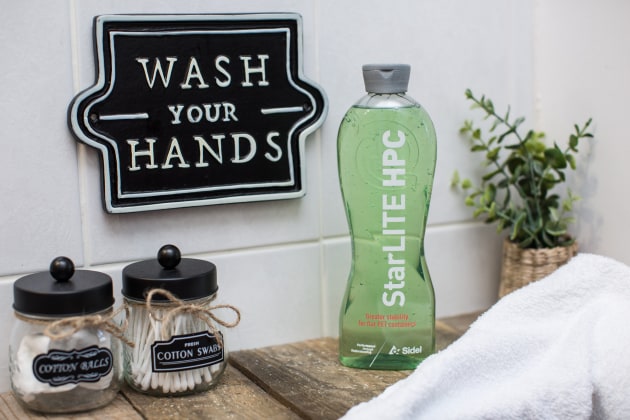Sidel is introducing the StarLITE HPC base, which is its new oval bottle base alternative for flat PET containers that helps achieve optimum performance and can also comply with recycled PET up to 100 per cent.
The new bottle base not only increases container stability by up to 25 per cent, but also optimises bottle weight and energy consumption, reducing production costs, and greenhouse gas (GHG) emissions with a quick payback.
According to Sidel, the new geometry of the completely flat StarLITE HPC base is cleverly structured – its new anti-rocking design is based on a 360-degree continuous contact surface, which improves tilt angle and may be combined with structural ribs and oval push-up.
“The doubled sitting surface and the balanced stretching ratios between small and large sides enable better material distribution, while avoiding base sagging,” says Laurent Naveau, packaging expert at Sidel.
“This oval shape achieves an optimum performance level, drastically improving empty or filled container stability by up to 25 per cent.
“This helps increase production uptime, with better container stability on conveyors, in comparison with existing major flat PET container bases, and improves consumer experiences.“
Applicable for both opaque and transparent PET resins, the StarLITE HPC base offers wide containers opportunities and is perfectly compliant with rPET up to 100 per cent.
“The smart, asymmetric, structured base design improves material distribution, prevents unexpected base roll-out and contributes to lightweighting opportunities, such as a 0.5g PET reduction for a 500mL container base,” the company explains.
“The enhanced base cooling engineering for mould and tooling design improves base cooling during blow moulding, and may prevent post-mould base cooling according to bottle shape, format and weight.”
Thanks to its design, the StarLITE HPC base is easy to blow and reduces blow moulding pressure by up to 10 per cent. It also makes it possible to push the process speed limit even further and to increase production output up to 15 per cent higher than the market average.
For instance, a flat container produced at 1600 bottles per hour per mould (BHM) with a standard market base can be blown up to 1800 BHM with the StarLITE HPC base, with possibilities to reach up to 2000 BHM according to bottle shape.
According to Sidel, with the investment in a new set of moulds equipped with the StarLITE HPC base, very fast payback in less than one year can be achieved, while drastically reducing GHG emissions.







